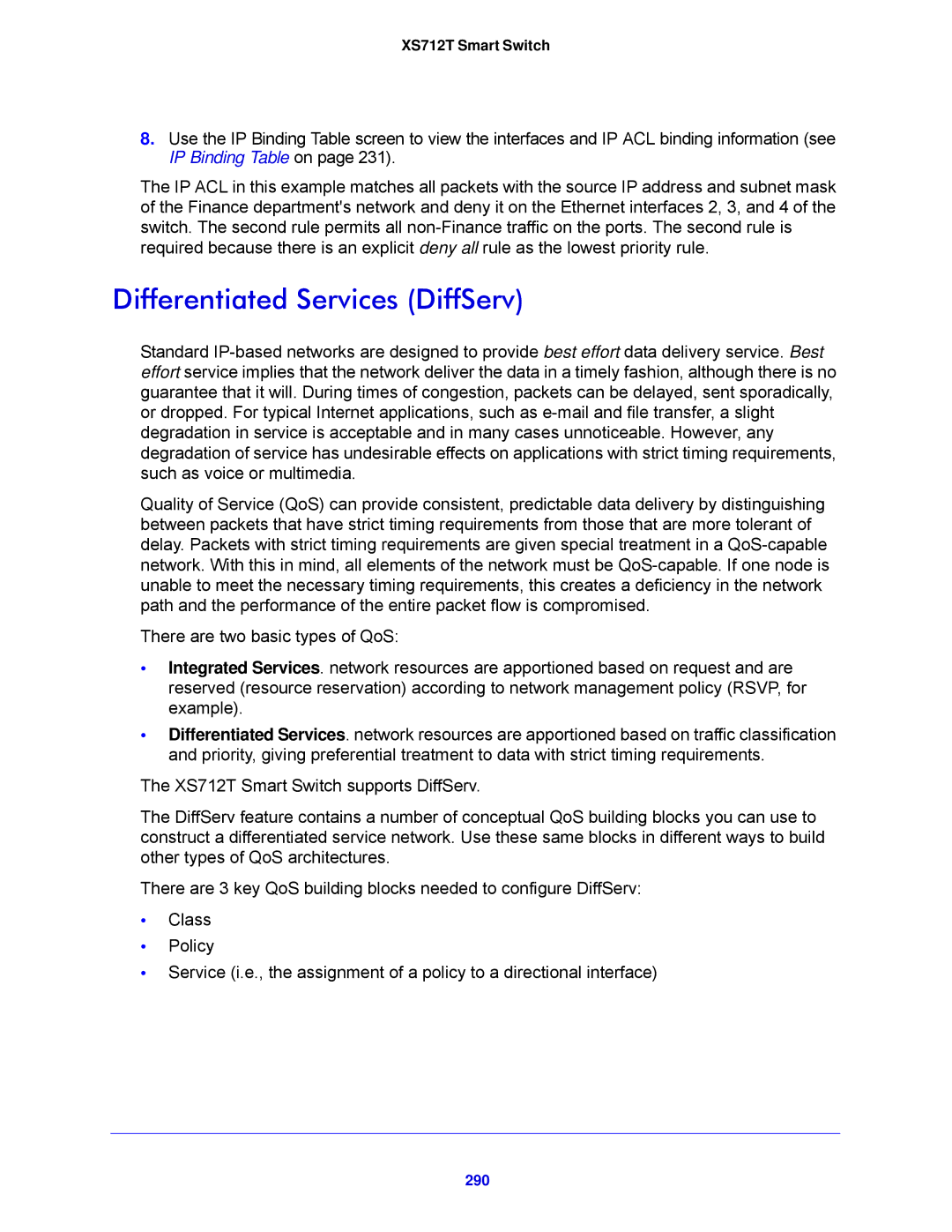XS712T Smart Switch
8.Use the IP Binding Table screen to view the interfaces and IP ACL binding information (see IP Binding Table on page 231).
The IP ACL in this example matches all packets with the source IP address and subnet mask of the Finance department's network and deny it on the Ethernet interfaces 2, 3, and 4 of the switch. The second rule permits all
Differentiated Services (DiffServ)
Standard
Quality of Service (QoS) can provide consistent, predictable data delivery by distinguishing between packets that have strict timing requirements from those that are more tolerant of delay. Packets with strict timing requirements are given special treatment in a
There are two basic types of QoS:
•Integrated Services. network resources are apportioned based on request and are reserved (resource reservation) according to network management policy (RSVP, for example).
•Differentiated Services. network resources are apportioned based on traffic classification and priority, giving preferential treatment to data with strict timing requirements.
The XS712T Smart Switch supports DiffServ.
The DiffServ feature contains a number of conceptual QoS building blocks you can use to construct a differentiated service network. Use these same blocks in different ways to build other types of QoS architectures.
There are 3 key QoS building blocks needed to configure DiffServ:
•Class
•Policy
•Service (i.e., the assignment of a policy to a directional interface)
